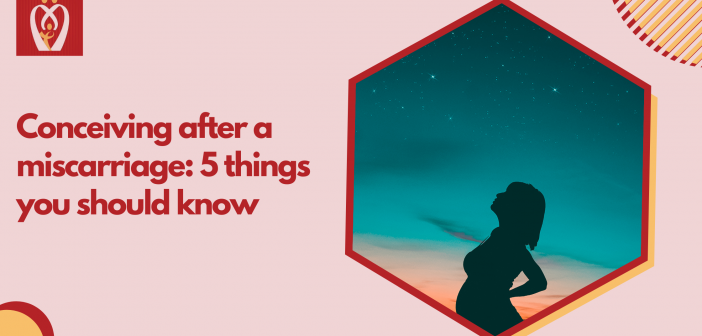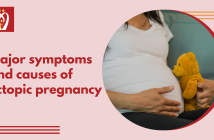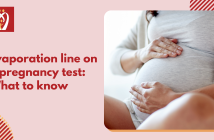Pregnancy after miscarriage is something to consider. As a result of your miscarriage, you may feel anxious or confused about what caused it and when to start trying for a baby again. Pregnancy after miscarriage can be confusing, but there are steps you can take to make sure you have a healthy pregnancy.
A miscarriage is most commonly caused by what factors?
A miscarriage occurs when a foetus is lost before the 20th week of pregnancy. Many pregnancies end in miscarriage because the foetus is not growing as it should. About half of all pregnancies end in miscarriage due to chromosomal abnormalities. Even though chromosome problems are more common in older women, they typically arise by chance during the division and growth of the developing embryo. Miscarriage can occur if a health condition, such as diabetes or a uterine problem, is poorly controlled. In most cases, there isn’t enough information to determine what caused the miscarriage.
Miscarriage occurs in about 8% to 20% of all known pregnancies. Total miscarriages are likely to be higher because many women miscarry before realising their pregnancies have begun.
It’s possible that medical testing is necessary for pregnancy after miscarriage
In some cases, medical professionals may be able to identify the cause of miscarriage. You may need additional testing if you’ve had two or more miscarriages in a row. Tests such as blood tests, chromosomal tests, and a uterine ultrasound can help determine if you or your partner have any health issues that could negatively affect your pregnancy.
There is nothing wrong with feeling a mix of emotions
After a loss, your emotions may be all over the place. You may be in a state of mourning, but you also want to move forward with trying for another child right away. Maybe you’d like to give it another shot, but you’re undecided about it most days. Weeping frequently or withdrawing from others could be signs that something is wrong. It’s possible that you won’t experience any sadness at all. In the wake of a miscarriage, it’s normal to feel all of these things. It’s critical to acknowledge your emotions and communicate them to your partner. After all, pregnancy after miscarriage is tough.
When there are two or more miscarriages, finding the root cause is critical
Medical conditions such as diabetes, thyroid problems (hyperthyroidism and hypothyroidism), obesity, chromosomal aberrations, or infertility frequently interfere with pregnancy. Having a healthy pregnancy is possible with timely medical intervention. Pregnant women are given Prenatal Vitamins to reduce the risk of miscarriage (Folic Acid in particular).
Pregnancy is a time to avoid stress and anxiety
Take a deep breath and focus on finding as much joy as you can. Take short walks, read a book, or play music to relax. Getting a good night’s sleep is essential. You can also do some light physical activity. If you want to be safe, have an expert supervise your workouts. Don’t put yourself at risk by continuing to engage in unhealthy behaviours like drinking and smoking.
Try to take a break when needed
As a couple’s relationship is strained by their focus on fertility and the possibility of infertility, so is their life. Consider a break if all of your social interactions revolve around having a baby. If you’ve had a miscarriage and are struggling to conceive again, it’s fine to take a break. Adoption and surrogacy are acceptable methods of starting a family if trying to conceive biologically becomes too stressful.
Medically or emotionally, pregnancy after miscarriage may not be any different from conceiving the first time around. Prior to reentering the fertile zone, it’s a good idea to weigh the risks, the impact on the relationship, and the long-term emotional effects of the decision.
After a miscarriage, when is the best time to start a family?
Anxiety and sadness are common reactions to miscarriage. You and your partner may also feel sadness, anxiety, or guilt as a result of your separation. Don’t hurriedly go through the grief process.
For the first two weeks after a miscarriage, sex is discouraged to prevent the spread of infection. You can ovulate and become pregnant as soon as two weeks after a miscarriage.
After a miscarriage, if you are emotionally and physically ready to start a family, ask your GP for advice. They may suggest prenatal testing if you’ve had two or more miscarriages.
The most important thing to remember after a miscarriage is that you’re not alone. It is still possible for women in your situation to have a normal pregnancy. Learn about your body from the inside out. After consulting with your GP, make an informed decision.







